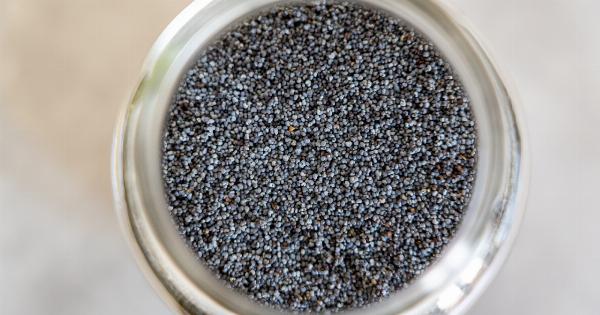Vitamins and minerals play a vital role in our body’s functioning. They are essential for maintaining good health and preventing diseases.
While a balanced diet consisting of fruits, vegetables, whole grains, and lean proteins can provide us with the required nutrients, many people may require additional supplements to meet their daily needs. In this article, we will discuss ten warning signs that indicate your body needs more vitamins and minerals.
1. Fatigue and Weakness
If you feel tired and weak despite getting enough sleep, it could be a sign of iron deficiency. Iron is essential for producing hemoglobin, a protein in red blood cells that carries oxygen throughout the body.
When the body lacks iron, it cannot produce enough hemoglobin, leading to anemia. Anemia can make you feel lethargic, weak, and irritable.
2. Hair and Nail Issues
If you notice that your hair is thinning, or your nails are brittle and breaking off easily, it could be a sign of nutrient deficiencies. Lack of biotin, vitamins B12, and C, and minerals such as zinc and iron can cause hair and nail issues.
Biotin, for instance, is essential for healthy hair and nail growth, while vitamin C helps in collagen production, which promotes healthy skin, nails, and hair.
3. Frequent Illnesses
If you find yourself falling sick often, it could be a sign that your immune system is weak and requires a boost from vitamins and minerals. Vitamin C, D, and zinc are crucial for immune health and play a role in preventing and treating illnesses.
4. Mouth Ulcers
Mouth ulcers or canker sores can be painful and uncomfortable. While they can occur due to stress, genetics, or injuries, a lack of vitamin B12, iron, and folic acid can also contribute to its development.
Therefore, if you are experiencing frequent mouth ulcers, you may need to increase your intake of these vitamins and minerals.
5. Delayed Wound Healing
If your wounds take longer than usual to heal, it could indicate a lack of vitamins and minerals such as vitamin C, zinc, and copper.
Vitamin C is essential for collagen production, which helps in wound healing, while zinc and copper are crucial for tissue repair and development.
6. Muscle Cramps and Spasms
If you frequently experience muscle cramps and spasms, it could indicate a lack of magnesium, calcium, and potassium in your diet.
These minerals play an essential role in muscle contraction and relaxation and are necessary for maintaining good muscle function.
7. Vision Problems
Vitamin A is essential for good vision, and a lack of this vitamin can cause several vision problems, including night blindness and dry eyes. Other nutrients such as vitamin C, E, and zinc are also crucial for maintaining good eye health.
8. Skin Problems
If you have dry, flaky, or itchy skin, it could indicate a lack of vitamins and minerals such as vitamin A, C, and E, and zinc. These nutrients are necessary for maintaining healthy skin, repairing damaged skin cells, and preventing premature aging.
9. Mood Swings and Anxiety
If you experience mood swings, anxiety, and depression, it could indicate a lack of vitamin D and folate.
Vitamin D is essential for regulating mood and reducing the risk of depression, while folate is necessary for brain development and preventing mood disorders.
10. Poor Digestive Health
If you experience digestive issues such as bloating, constipation, diarrhea, and stomach cramps, it could indicate a lack of probiotics, fiber, and vitamins and minerals such as vitamin D, B12, and magnesium.
These nutrients are essential for maintaining good gut health, promoting good bacteria growth, and preventing digestive disorders.
Conclusion
Vitamins and minerals play a vital role in maintaining good health and preventing diseases. If you experience any of these warning signs, it is essential to consult a healthcare professional and assess your nutrient intake.
A balanced diet consisting of fruits, vegetables, whole grains, and lean proteins can provide us with the required nutrients. However, some people may need to take supplements to meet their daily needs. Remember, prevention is always better than cure.





























